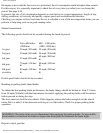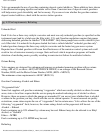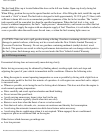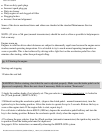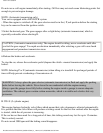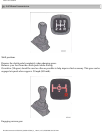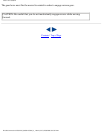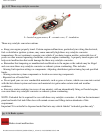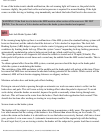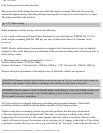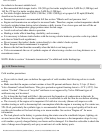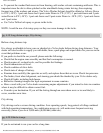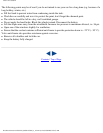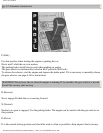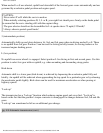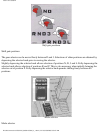
1993 Volvo 850 GLT
If one of the brake circuits should malfunction, the red warning light will come on, the pedal stroke
increases slightly, the pedal feels softer and extra pressure is required for normal braking. If the light
comes on while driving or braking, stop immediately and check the brake fluid level in the reservoir.
WARNING! If the fluid level is below the MIN mark in either section of the reservoir: DO NOT
DRIVE. Tow the car to a Volvo dealer and have the brake system checked and repaired.
Anti-lock Brake System ABS
If the warning lamp lights up there is a malfunction of the ABS system (the standard braking system will
however function) and the vehicle should be driven to a Volvo dealer for inspection. The Anti-lock
Braking System (ABS) helps to improve vehicle control (stopping and steering) during severe braking
conditions by limiting brake lock-up. When the system "senses" impending lock-up, braking pressure is
automatically modulated in order to help prevent lock-up, which could lead to a skid.
The system performs a self-diagnostic test when the vehicle is started and at 20 mph (30 km/h). The
brake pedal will pulsate several times and a sound may be audible from the ABS control module. This is
normal.
To obtain optimal effect from the ABS system, constant pressure should be kept on the brake pedal
while the system is modulating the brakes.
The switching of the ABS modulator will be audible and the brake pedal will pulsate at this time. Please
be aware that ABS does not increase the absolute braking potential of the vehicle. While control will be
enhanced, ABS will not shorten stopping distances on slippery surfaces.
Moisture on brake discs and brake pads affects braking.
Driving in rain and slush or passing through an automatic car wash can cause water to collect on the
brake discs and pads. This will cause a delay in braking effect when the pedal is depressed. To avoid
such a delay when the brakes are needed, depress the pedal occasionally when driving through rain,
slush etc. This will remove the water from the brakes. Check that brake application feels normal! This
should also be done after washing or starting in very damp weather.
Severe strain on the brake system
The brakes will be subject to severe strain when driving in mountains or hilly areas. The speed is usually
low which means that the cooling of the brakes is less efficient than when driving on level roads. To
reduce the strain on the brakes it is advisable not to use the brakes excessively. Instead, shift into a lower
gear, position 3 or in some cases, L (automatic transmission) and let the engine help with the braking.
Do not forget that, if you are towing a trailer, the brakes will be subjected to greater load than is normal.
file:///K|/ownersdocs/1993/1993_850GLT/93850_4_15.html (2 of 6)12/30/2006 9:43:03 AM



